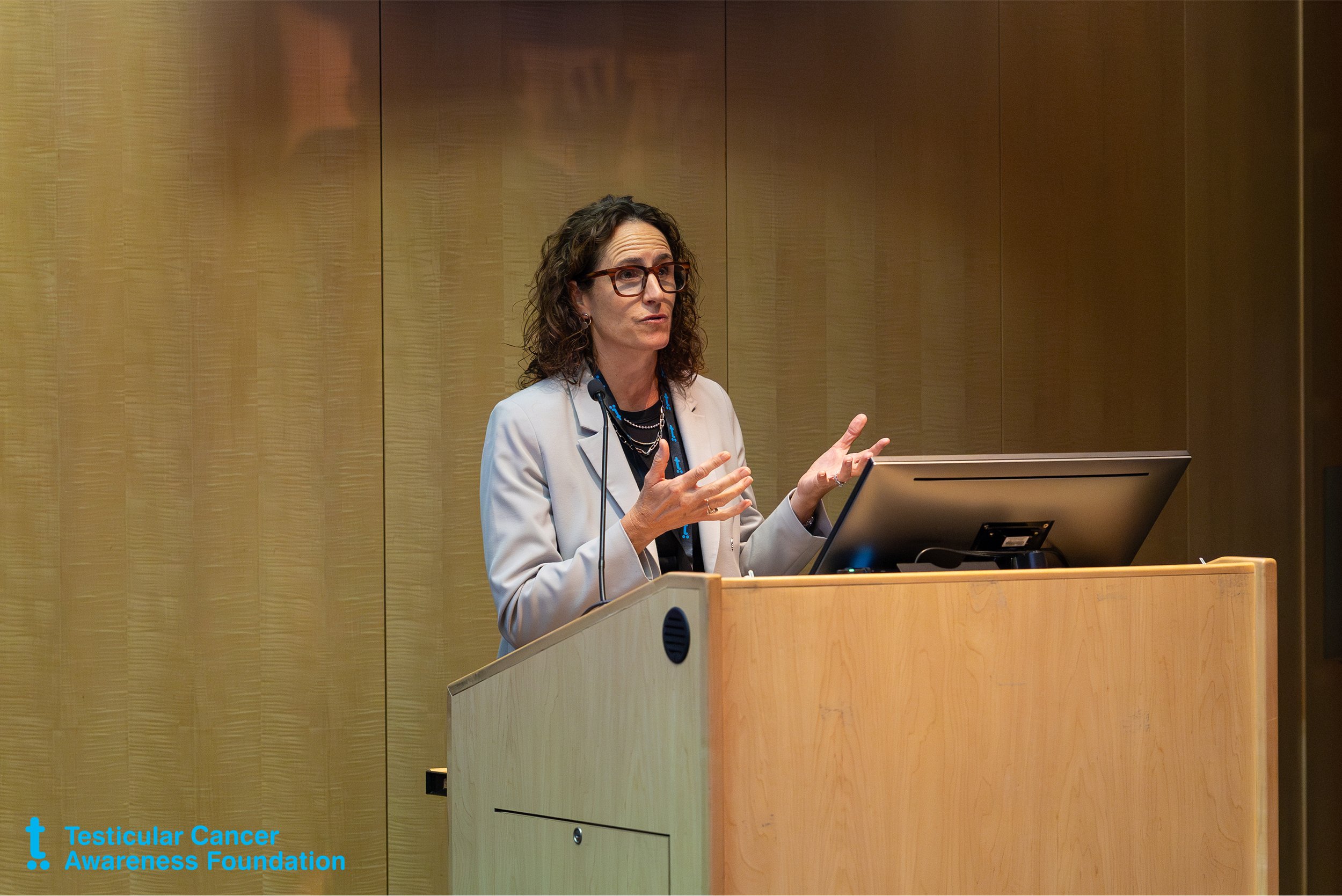Brian emphasized the importance of humor, support, and staying active during his treatment. He continued working remotely, often sharing light-hearted moments with his boss and colleagues, who were supportive throughout his journey. His cat, family, and especially his wife Jamie provided immense emotional support.
Read MoreDr. Hsieh emphasized that understanding and treating testosterone deficiency is a vital part of survivorship care for testicular cancer patients. He encouraged survivors to advocate for themselves and consult healthcare professionals to manage symptoms effectively.
Read MoreDr. Patel emphasized the importance of early fertility preservation discussions before any cancer treatment begins. Personalized care, thorough counseling, and access to reproductive technologies are crucial for optimizing fertility outcomes in testicular cancer survivors. Addressing both medical and psychosocial factors enables patients to make informed decisions about their reproductive health.
Read More"Livestrong at the YMCA" offers a comprehensive approach to cancer recovery, combining personalized exercise with peer support to enhance physical and emotional well-being. The program helps survivors regain confidence, return to daily activities, and establish lifelong healthy habits within a supportive community.
Read MoreRoberts reiterated that these longstanding recommendations include eating a variety of foods, maintaining a healthy weight, limiting saturated fats, sugars, and sodium, and consuming alcohol in moderation. She stressed that these guidelines are applicable to cancer prevention, during treatment, and in survivorship.
Read MoreThey are conducting the Bridge Study, partnering with various cancer foundations, including the Testicular Cancer Awareness Foundation, to evaluate the effectiveness of these AI-generated summaries among patients with testicular cancer. Participants will compare original abstracts with AI-generated summaries to assess understandability, preference, and the time taken to comprehend the information.
Read MoreDr. Millard highlighted that pre-existing mental health issues can affect how patients cope with cancer. He shared the case of "Danny," a 28-year-old patient who refused chemotherapy despite a high cure rate for his condition, ultimately leading to his death.
Read MoreSleiter highlighted the importance of incorporating strategies to prevent ototoxicity into cancer treatment plans without compromising the effectiveness of chemotherapy.
Read MoreDr. Banegas emphasized that financial hardship is a multifaceted issue requiring a proactive and comprehensive approach from healthcare systems.
Read MoreAt the 2024 Testicular Cancer Conference presented by Fennec Pharmaceuticals, Dr. Timothy Masterson from Indiana University presented on the evolution of surgical management in metastatic testicular cancer. He traced the historical advancements from a time when there were no serum tumor markers, effective chemotherapy, or advanced imaging like CT scans. Early treatments involved extensive surgeries with high morbidity, and seminomas were primarily treated with radiation due to lower short-term risks compared to surgery.
Read MoreWe are excited to welcome John Klish (Klishy) as a guest speaker at the Testicular Cancer Conference 2018. John Klish was born with bi-lateral profound hearing loss, meaning profoundly deaf. That didn’t stop him from following his dreams. He graduated from Colorado State University with a degree in mechanical engineering while racing on the collegiate cycling team.
Read More










